Wolf Song – The Maiden Voyage of River Song Adventures
By Andrew McGillivray
It was a series of firsts: first time on the Churchill River in Labrador and the first time on a canoe trip with my son, Alex. Matter of fact, it was the first time I had sat in a canoe for many years. We were in Labrador visiting my sister, Jane, and my nephew, David. That visit was also the first one in many years. And it was another first: the first expedition of David’s fledgling enterprise, River Song Adventures.
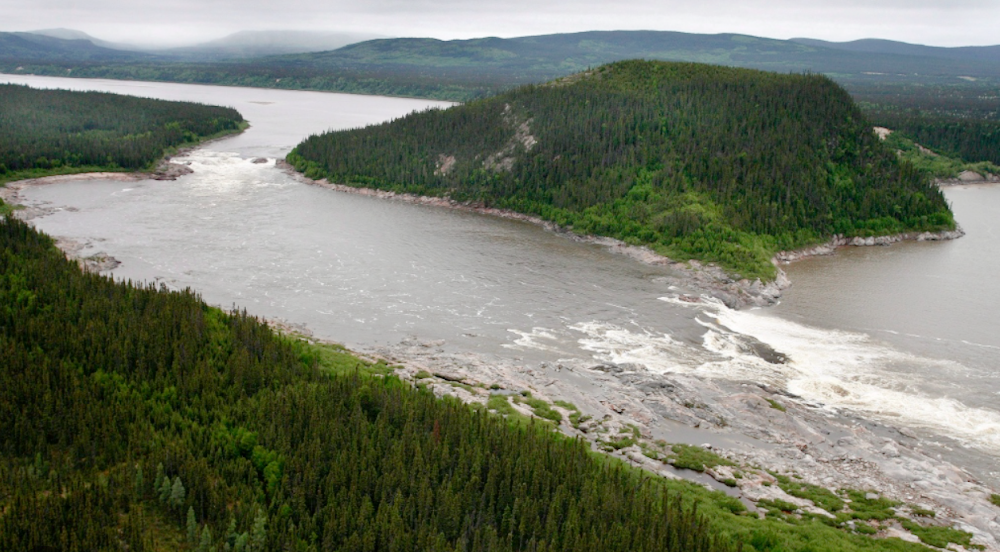
We put our canoes in the water below the rapids at Gull Island, approximately 65 km upriver from Muskrat Falls. Before we took off, Jane informed us there was another set of rapids a short distance downstream from our point of departure. I felt a momentary rush of panic; I hadn’t signed on to run rapids. I was expecting a relatively calm patch of river with little, if any, white water. A canoeing mishap during my youth had made nervous around fast-moving water – which, I suppose, made yet another first: the first time in many years that I had deliberately placed myself in a situation that could prove to be uncomfortable.
Even so, David assured me that the rapids we were about to go through were fairly mild, as white water goes, and not difficult to manoeuvre. After some brief instruction, we headed downriver, with David and me in one canoe and Jane and Alex in the other. David is a skilled canoeist and a trained wilderness guide with certification in white water rescue, so I knew I was in good hands. In any case, I was hardly about to show fear in front of my son. Still, I felt a knot of apprehension as our canoes carried us toward the rapids.
There is nothing quite like the feeling of having faced a fear – even if it’s not a crippling one – and having successfully overcome it. David negotiated the rapids with ease, leaving me to do little more than paddle when he told me to. Once we were in the rapids, they didn’t seem nearly as daunting as they had seemed moments before. On reflection, I shouldn’t have been surprised by this: David was raised here; the Labrador wilderness is his backyard and he knows it intimately.
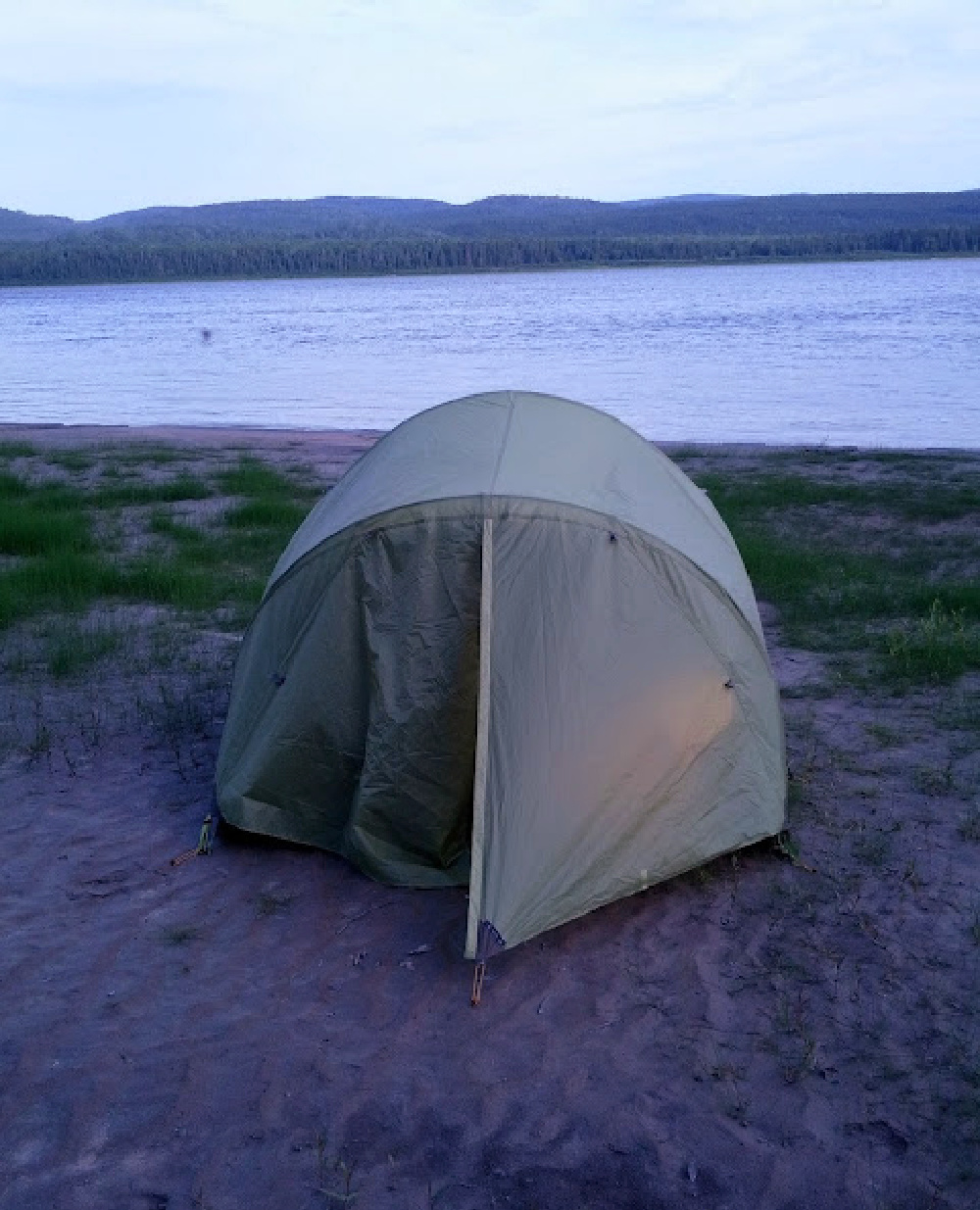
We made camp about an hour before sunset. We pitched our tents on a sandy beach at the river’s edge, and got to work preparing the evening meal. After supper, it had grown dark and we gathered around the campfire. Jane started the evening’s entertainment by drumming on a pot. David grabbed a pan and drummed out a complementary rhythm, and Alex and I didn’t waste any time joining in with improvised instruments of our own. Caught up in the excitement of the moment, someone began to howl like a wolf, and the rest of us followed suit. We howled and drummed until we collapsed into laughter, and after our laughing had died down, we started spinning stories.
Suddenly, not five minutes after we had quieted down, a wolf howled from somewhere downstream. That was answered by another howl from somewhere upstream, and then a third wolf howled from directly across the river. Then the night erupted with the songs of wolves up and down the river. We listened with awe. From somewhere nearby, yet another wolf howled. That one felt uncomfortably close, and we started to worry that our noise had drawn the wolves toward our camp.
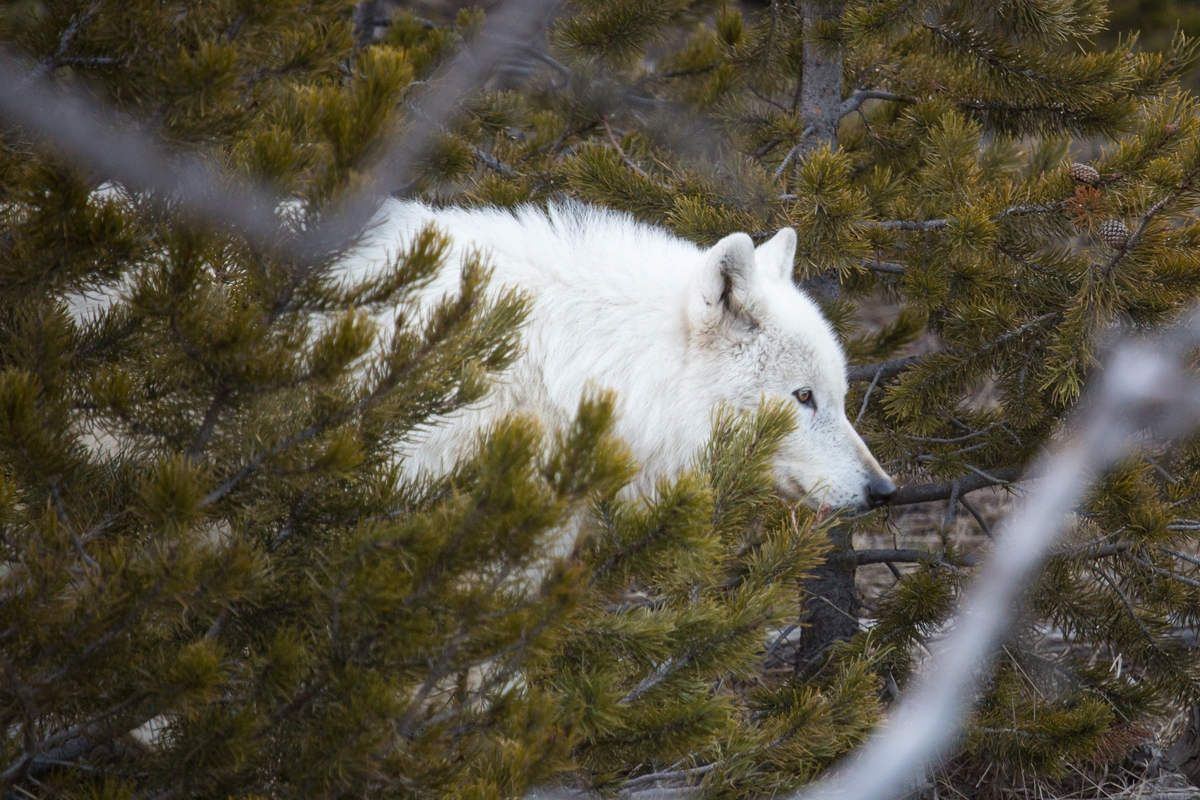
By silent agreement we huddled close to the fire, and whispered among ourselves, all the while peering into the surrounding darkness. David chose that moment to warn us about how to behave around wild animals. “When you meet a wild animal,” he said, “show no fear. If you show fear, it will cause the animal to also be afraid, and that will make him more likely to attack you.”
“Anyway,” he added, “there have never been any reports of wolves actually attacking humans.”
Then after a short pause David said, “I’m sorry, Mr. Wolf, that we are too timid to talk back to you now.” We all laughed at this, and that eased our tension.
Eventually, one by one, the wolves stopped howling. The only one that continued to howl was the one closest to us, and that carried on for some time. It was as though he was trying to get us to answer him so he could find us again. We went to our tents while he was still calling and I lay in the darkness and listened to him howl out his disappointment. After a time, he gave up and we went to sleep.
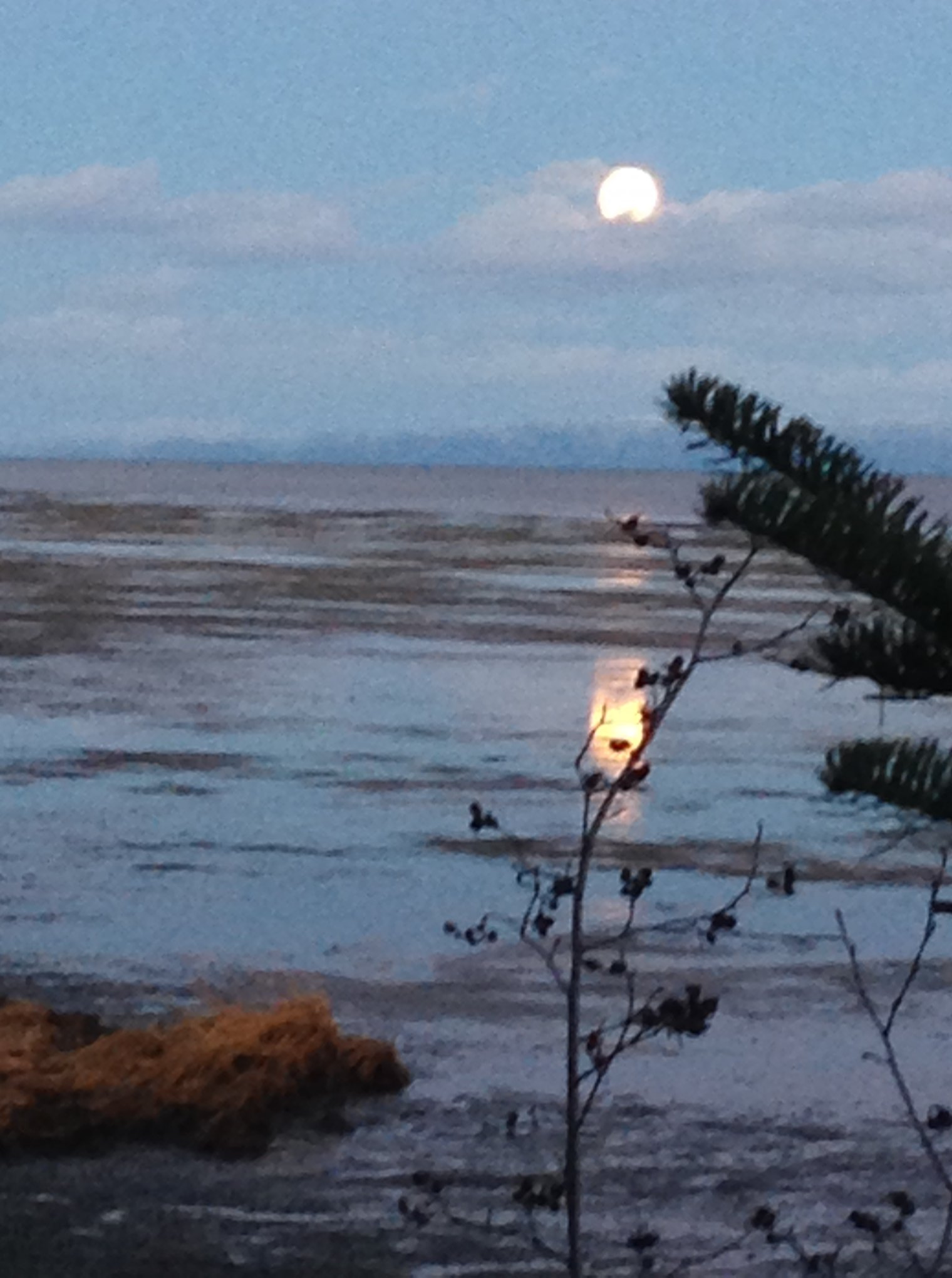
During the second day, I got used to the rhythm of the water. Most of the time, the river was relatively calm, though the current produced small swells and ripples that made the surface resemble a pot of water seconds before it starts to boil. Some parts, however, spawned waves that bounced our canoes like corks, and some of these waves appeared bigger than those I had encountered in the first set of rapids. It occurred to me then that I was no longer apprehensive about them, and I was actually enjoying the ride.
All the while, we kept our own rhythm. I matched the pace of my paddle strokes with David’s, and after a few minutes the rhythm took over. Each stroke of the paddle followed the one before it in a monotonous cadence, and often my mind would wander. As I studied various points on the horizon I tried to gauge distances and grew increasingly aware that I was surrounded by a vast wilderness that draws its power from its sheer size and demands respect from those who traverse it. For those who do not give this land its due, the penalty can be death.
This is a land where, only two or three generations ago, trappers left their wives and children behind for the winter to harvest trap lines that often were dozens of frozen kilometers away. Wives did chores at home and raised children on the edge of this endless wilderness and prayed they would see their husbands again in the spring. The descendents of these tough men and women still operate those trap lines, though now they can travel the same distance by snowmobile on a weekend.
The land was silent except for the occasional cry of a bird or the drone of an aircraft flying far overhead. In the background, almost below the level of conscious recognition, was the steady sound of moving water, which sometimes strengthened into a roar but mostly stayed as a soft whisper. This is what Jane refers to as the river’s song.
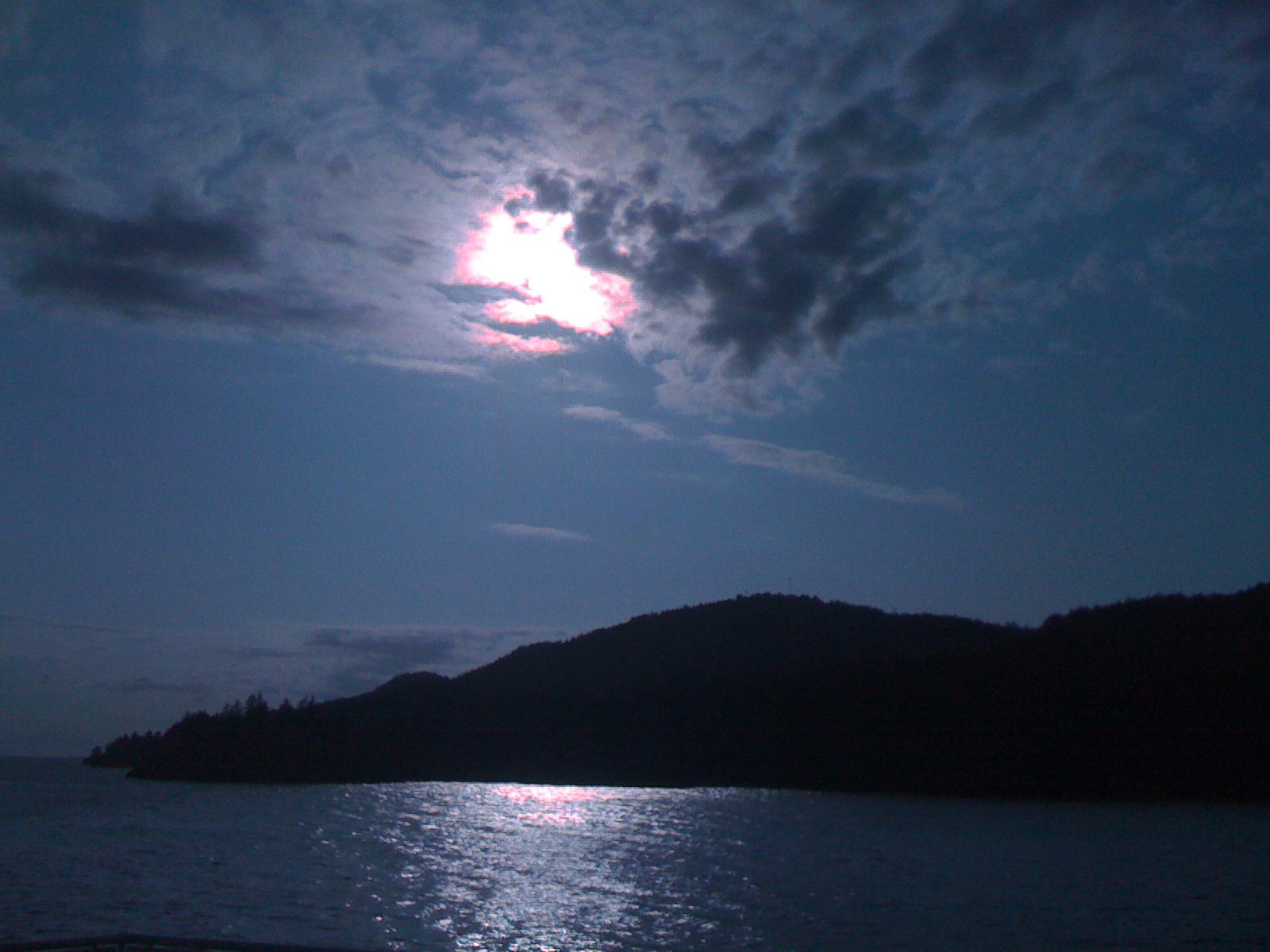
That night, we camped at the mouth of a small stream. A pair of otters had made their home there, though they didn’t seem bothered by our presence. In fact, while we ate our supper by the fire, the otters trolled for their supper in the river in front of our campsite, taking turns diving noisily and reappearing seconds later to swim against the current and watch us from the safety of the river.
We retired to our tents early that evening, before dusk had become fully dark. My muscles ached from a day of paddling, and sleep beckoned. Shortly after I had settled into my sleeping bag, I thought I heard an animal sniffing around our tents. Alex heard it too, and we both raised our heads and listened. It could have been an animal, or it could have been the sigh of the partially open flap against the fabric of the tent; either way, I was too tired to investigate. We heard nothing more, though, and soon we fell asleep.
>When we awoke the next morning, the sky was overcast. It had started to rain during the early morning hours and a light rain was falling steadily. It would stay that way as we paddled the rest of the way downriver. Just before loading up our canoes for the paddle home, Jane signalled me to come and see something she had found. There were fresh wolf tracks in the soft mud at the river’s edge. “At least one wolf visited us last night,” she said.
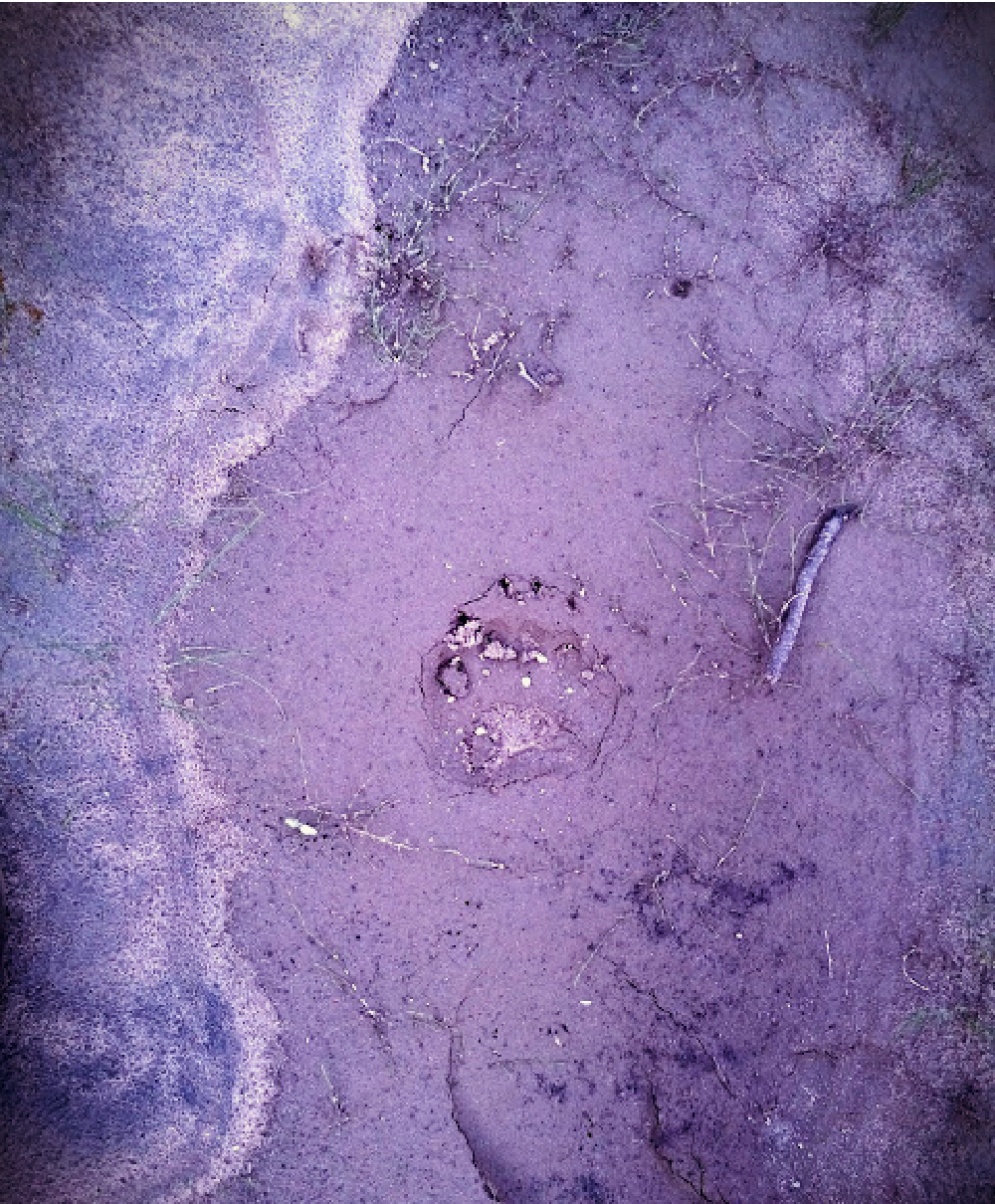
Wearing rain gear under our life jackets, we pushed off from shore. When we got out onto the river a wind had come up and it drove the rain into our faces. I tried to ignore the rain as best I could and keep paddling. About an hour into our paddle, we heard the howl of a lone wolf coming from the forest along the river. David gave an answering howl. “Let’s see if we can bring it out onto the beach,” he said.
Sure enough, not thirty seconds later, a large wolf trotted out from the cover of the trees and regarded us solemnly from shore. It followed our progress down the river for awhile before disappearing back into the forest.
“That was a first,” said Jane, who is a veteran of more than a dozen much longer trips down the Churchill River. “I’ve never seen that happen before now.”
We continued on without further incident, and that afternoon we arrived at Muskrat Falls, where we pulled our canoes out of the water and headed back home to hot showers and a feast of wild salmon.
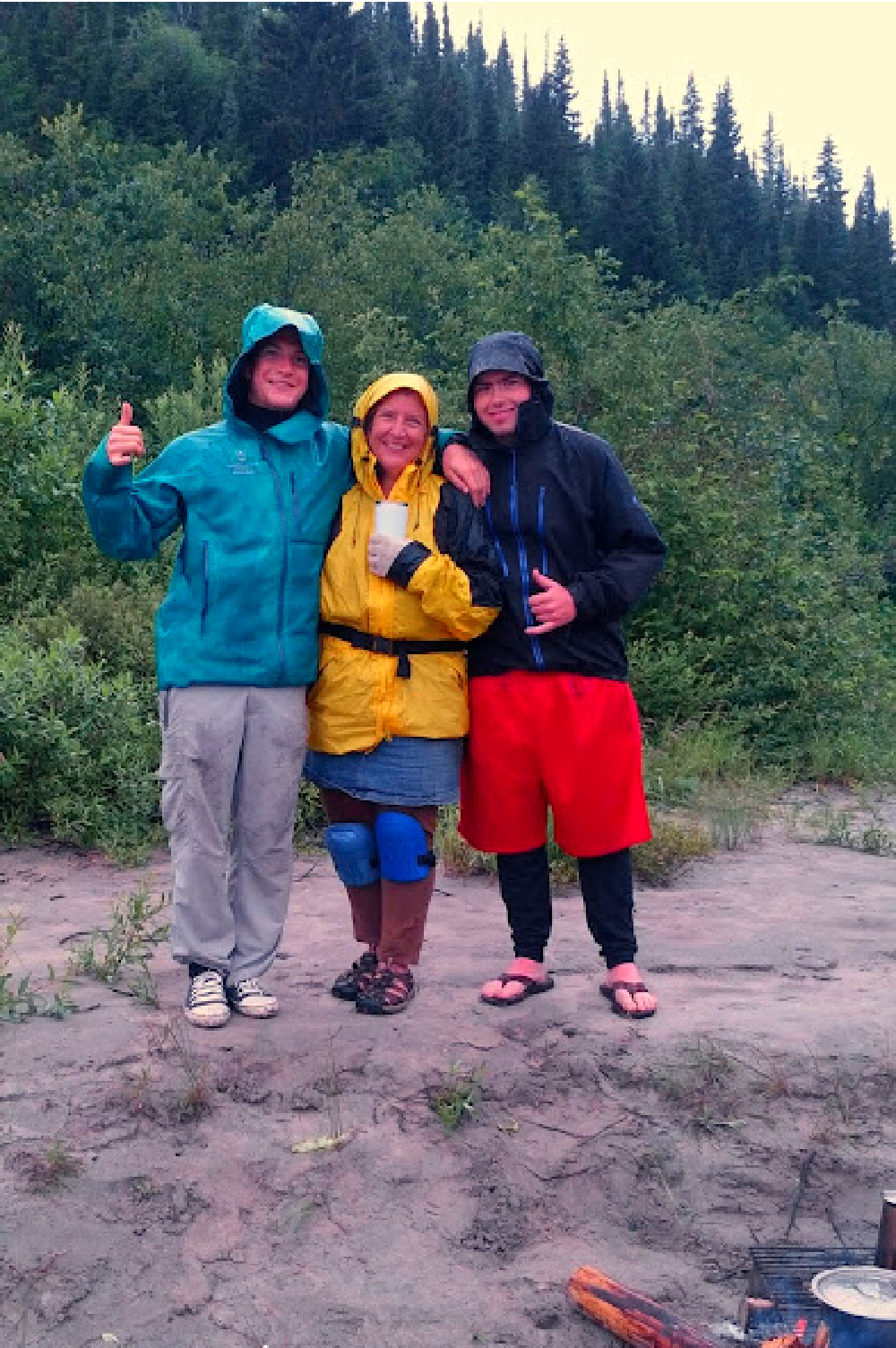
So what did I get out of all this? Well, for one, I faced down a fear and won. It wasn’t a big fear. It’s not like I was paralyzed by it. I don’t even think I said all that much about it until after I’d already gone through the rapids. But it was a challenge, and I overcame it. That’s a nice feeling.
And there was the spectacular scenery. I suppose what was so overwhelming for a city slicker like me was the feeling that I was reliving history. This was the same route used by countless trappers, voyageurs and woodsmen in the centuries before I was born.
And there was spending time with my sister and my nephew. It was nice to pass the time in their habitat.
And there were the wolves. For those, like me, who are intrigued by such notions, it was like they were watching over us and providing safe passage through their land.
But mostly it was about my son. We didn’t talk all that much together. There were no revelations, no cataloguing of past hurts or future plans. But it was wonderful to paddle down the river with him and to watch him meet each circumstance with quiet competence. At some point during the trip it dawned on me that he has become a man I am proud to know.
That night, as I sat back with a bellyful of delicious salmon and basked in the warm feeling of accomplishment, Jane asked me whether I would consider making that trip again.
“In a heartbeat,” I replied.